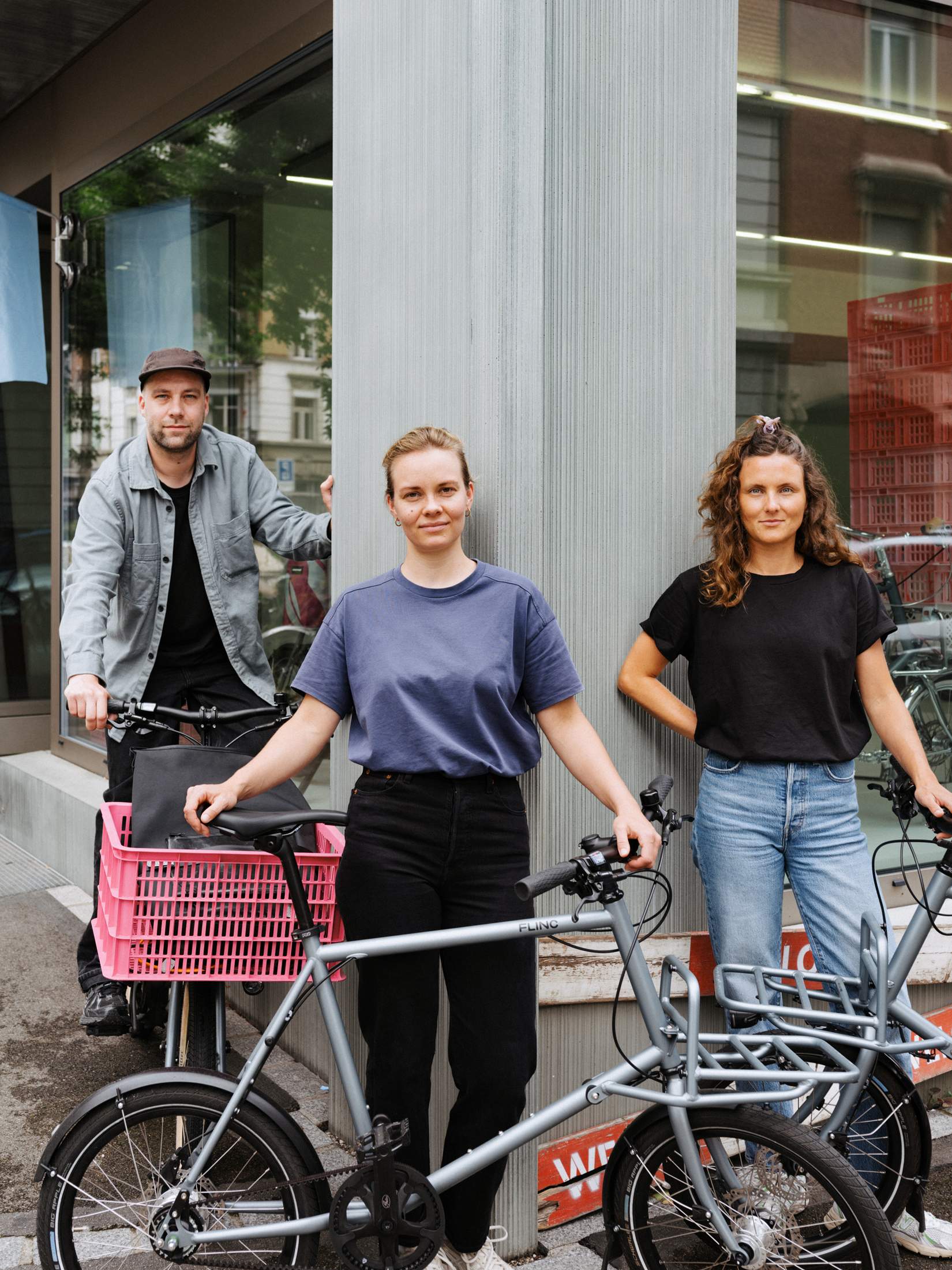Business: Zürich / Global
Easy riders
Compact-cargo-bike company Flinc is doing the heavy lifting that’s taking the Swiss cycle scene in a new direction.
Markus Freitag’s passion for pedals was first ignited in 1982 while watching Steven Spielberg’s ET. Some 40 years later, the Zürich-born entrepreneur has created a Spielberg-inspired bicycle brand that’s perfect for nipping around his hometown. Called Flinc, its namesake model is a svelte two-wheeler that is as compact as an urban minibike, as capacious as a cargo bike and as sturdy as ET’s bmx. “Our niche is an easily manoeuvrable model with a simple but sophisticated luggage system,” says Freitag.
In 1993, Markus and his brother, Daniel, launched Freitag, a brand that produces bags designed for cyclists, so launching a bike brand made complete sense. “Flinc is the bike I would love to have had on my doorstep all my life,” says Freitag, who reinvested his profits from the bag brand to launch the bike in April.
Though the Danes had pioneered the cargo bike in the 1980s, today the “Made in Switzerland” label is a hallmark of quality cycling products across the globe. Yet Zürich has not fully realised its potential as a cycling city. “The streets are cramped due to the tram system and we lack cycle lanes that would allow bikes to play a supporting role in this urban context,” says Freitag. The Flinc is a product of these surroundings, designed to comfortably navigate the narrow streets.


And Freitag’s brand might just be onto something: record numbers of commuters here are ditching the car for the bike. Pro Velo, a network of regional bike associations, saw a 21 per cent increase in participants in its Cycle to Work campaign when compared to 2022. This uptick is reflected in industry growth. In 2024 the Swiss bike sector is predicted to be worth €720m, while Denmark’s lags behind at €490m. “Bike ownership here has grown exponentially since the pandemic,” says frame builder Wim Kolb, who constructed the first Flinc prototype in 2020. “In Zürich, residents are interested in zero-emission alternatives and have the disposable income to be able to invest in quality,” he says. “The infrastructure needs to catch up to allow the cargo bike to flourish.”
The Flinc – meaning “nimble” in Swiss-German – is made from a special steel alloy. The compact design weighs 16kg, about a third of the weight of the average cargo bike. “We have deliberately not reinvented the bicycle,” says Freitag. Instead, high-quality, low-maintenance components were chosen, which complement a tried-and-trusted diamond-shaped frame. When monocle takes the Flinc for a spin, the pedalling feels effortless thanks to the smooth tread of the 20-inch tyres created by German manufacturer Schwalbe. All of these factors, says Freitag, mean that it is not necessary to power the bike with electricity. “The Flinc was designed for Zürich’s flat pavements.”
But Flinc isn’t just a brand; it’s also about community. On Thursday evenings, cyclists convene at the company’s HQ for a beer, a flick through its smart selection of cycling magazines and, should they choose, a test ride of the bike. Getting Zürich’s residents in the saddle requires both infrastructure and curiosity – the Flinc has certainly set the wheels in motion. —
flinccycles.com


